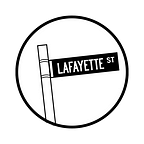Who controls Haute Couture
Today the term Couture is used loosely in reference to clothes that are expensive or especially luxurious, but in the past, it had a particular meaning and in France it still does. Formally Haute Couture refers to a manner of construction, one dedicated to hand-made quality and personalized fit. The rules of haute couture are strictly dictated and overseen by the Chambre Syndicale de la Haute Couture, which was established in 1868 and essentially codified the fashion of the 1900s. In France, haute couture is a legally protected designation, and the Ministry of Industry regularly reviews which design houses are allowed to use the nomenclature.
The Fédération de la Haute Couture et de la Mode brings together fashion brands and international development. It seeks to promote French fashion culture, where Haute Couture and creation have a major impact by combining traditional know-how and contemporary technology at all times. It contributes to bolstering Paris in its role as a worldwide fashion capital.
So what is their role in the french and global fashion industry?
It seeks to be an actor committed on behalf of its members and in coordination with them. It expresses, both in France and on the international scene, a strategic, economic, and cultural vision of fashion and creation. As a core element of an ecosystem resolutely geared towards the future, the Federation lies at the heart of the fashion industry’s changes and challenges. They provide its members with a range of services that relate to legal, social, economic, technological, marketing and communication issues and that are more generally relevant to the entire spectrum of business functions as a whole. This support is offered via dedicated commissions or individual appointments with brands. It is the one to coordinate and enhance Paris Fashion Week, including the official calendar of shows and presentations bringing together over 150 brands with recognized uniqueness. Brand applications are examined by a selection committee that guarantees the quality and diversity that are specific to Paris Fashion Week, a moment of creative abundance and an unmissable economic event. Just as it serves as a support mechanism for existing brands, one of the significant roles of the Chambre is to help expand the fashion industry and in in this way to accompany the development of emerging brands by granting them financial and organizational support, and broadly speaking the overall expertise, they need to structure and ease their development and exposure.
Then what exactly is Haute Couture?
Haute Couture is the creation of exclusive custom-fitted clothing. Haute couture is high-end fashion that is constructed by hand from start to finish, made from high-quality, expensive, often unusual fabric and sewn with extreme attention to detail and finished by the most experienced and capable sewers — often using time-consuming, hand-executed techniques. An haute couture garment is always made for an individual client, tailored specifically for the wearer’s measurements and body stance and only in Paris. Considering the amount of time, money, and skill allotted to each completed piece, haute couture garments are also described as having no price tag: budget is not relevant. In modern France, haute couture is a protected name that may not be used except by firms that meet certain well-defined standards. To be considered a haute couture house, brands must own an atelier in Paris with at least 15 full-time employees and present at least 35 looks in a show, twice a year. Each year the Chambre Syndicale de la Haute Couture draws up a list of official couture houses that meet those specifications. Its primary field of interest being handmade work accomplished within these Houses’ workshops, a laboratory for ideas and techniques, a space where creativity can flourish freely: this is Haute Couture, whose international renown has always remained true to itself and has contributed to making Paris fashion capital of the world.
The reason why the French government and the Ministry of Industry try so hard to protect Haute Couture is that it is a product that France offers to the world. For years, buyers from all around the world travel to Paris to see the latest looks and to spend thousands of dollars on dresses, and when money is involved, of course, they want to be the only ones in the world to be able to profit out of their invention. Think about it as a trademark registration or the Denominazione di Origine Controllata (Denomination of controlled origin) in Italy, they are just strategies to protect one’s inventions and to keep copycats as far as possible.
